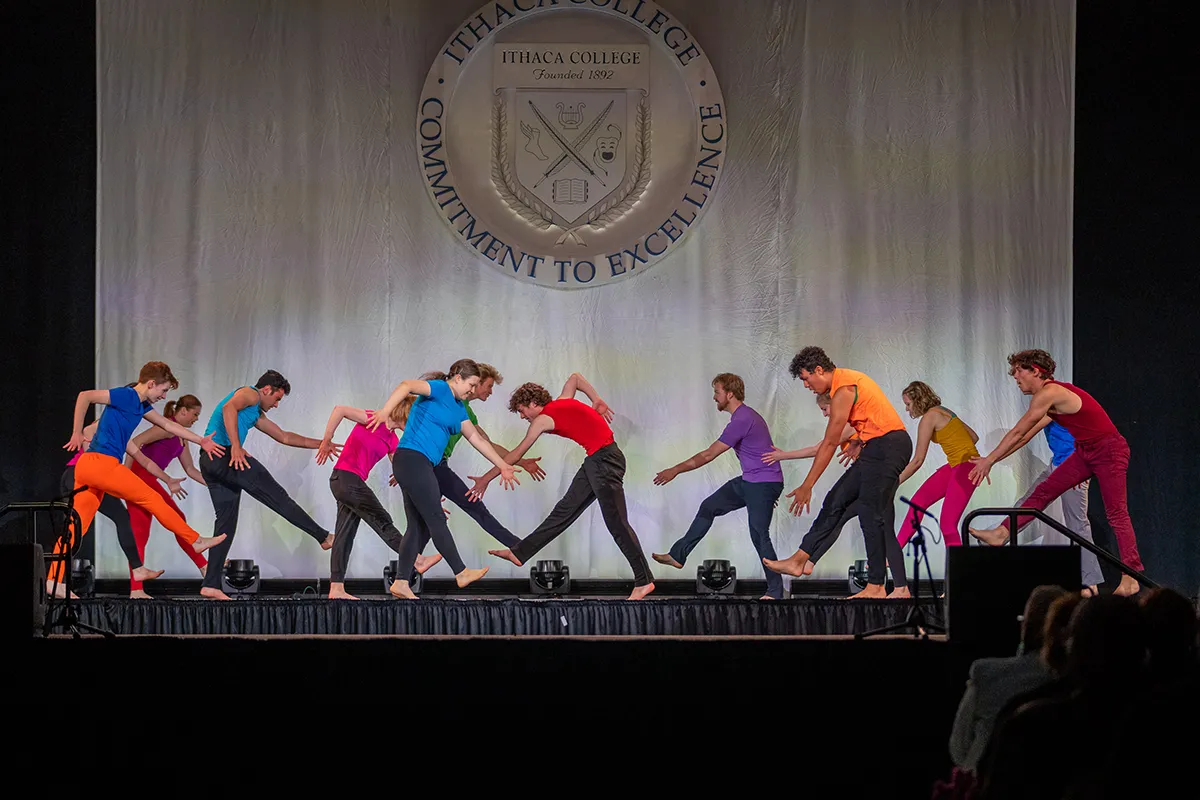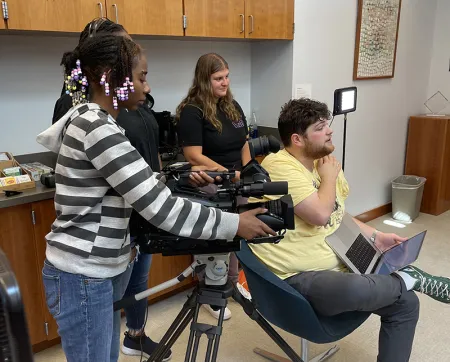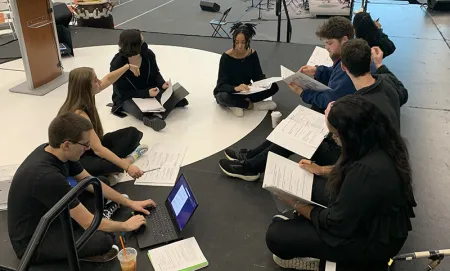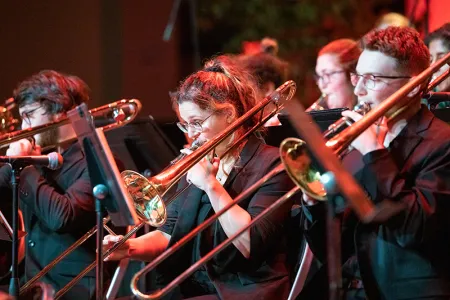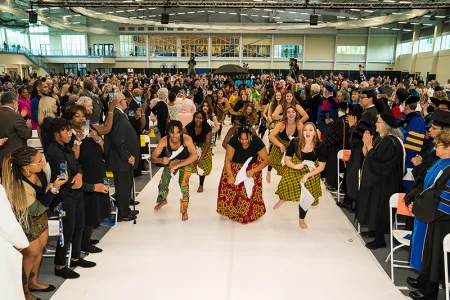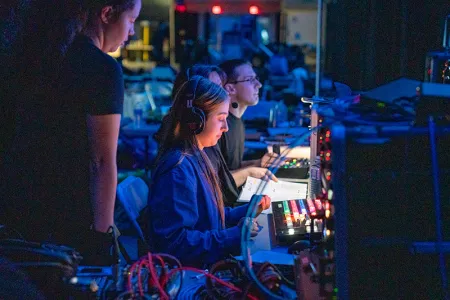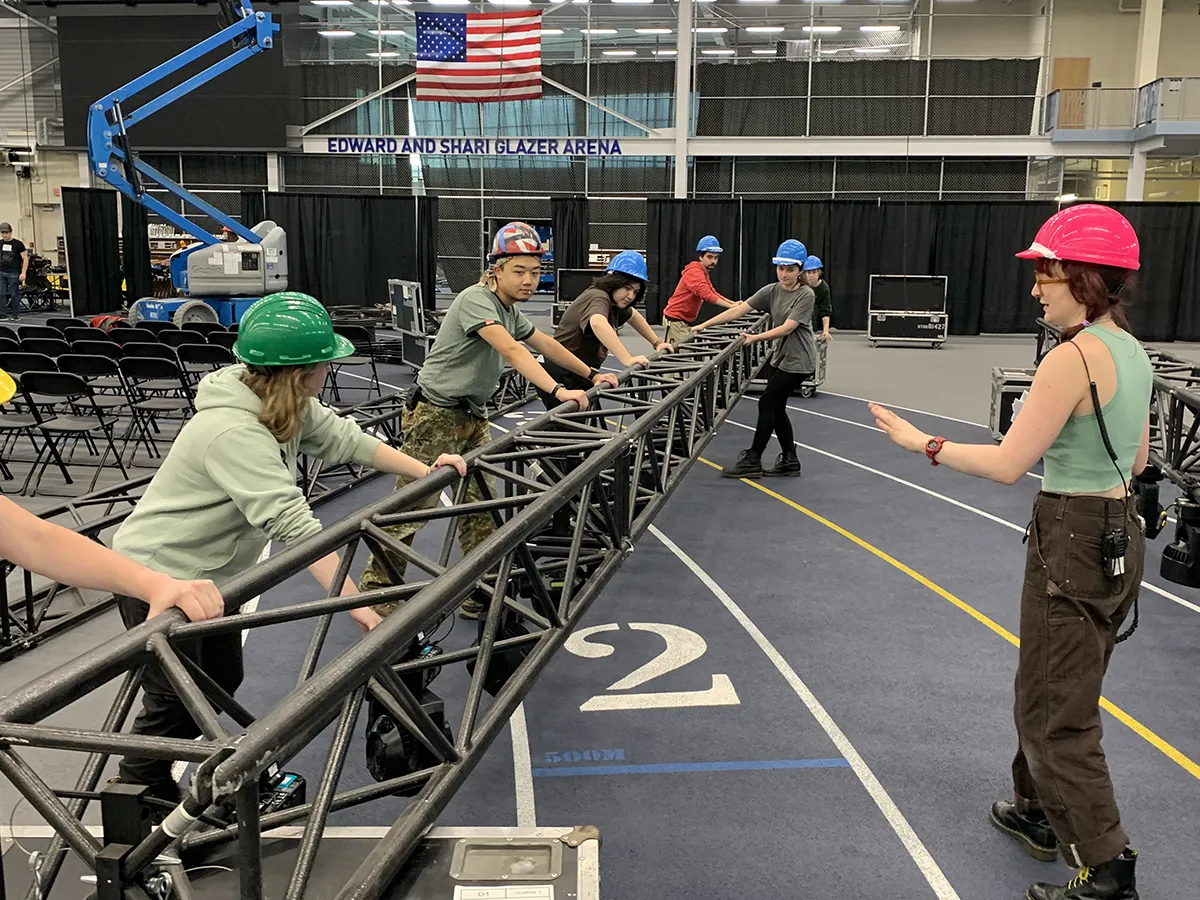Production and stage crews hailed from the theatre production and management department in the School of Music, Theater, and Dance, under the guidance of production coordinator Mike Garrett. Once TenEyck had finalized the event plans, he handed them over Garrett and his team to execute. Key roles were assistant lighting designer, production electrician, and lead rigger.
As assistant lighting designer, Ashley Crespo ’24 had been working with TenEyck since early August, meeting with technical teams and performers to create a light plot for the event. Crespo then collaborated with production electrician Colin Murphy ’23 to bring the plans to life.
“He [Murphy] took the plans as they were designed and figured out where all the cable needs to go, the lengths of the cable, how it all plugs into each other; he calculated the loads on each motor point and figured out how that whole piece was coming together,” said Garrett.
Murphy was also responsible for ordering the lights, as well as any additional equipment needed to hang them, since the A&E Center isn’t fully equipped to accommodate lighting for this type of event. He recruited students to help with unloading and setting up the arena, which began on Sunday, September 25, when the crew worked from 8 a.m. to 10 p.m. They continued to have calls throughout the week and Murphy was waiting on one more piece of equipment on the morning of the dress rehearsal. Fine tuning can happen right up to the day of the event.
Lead rigger Lavender Pyzowski ’24 was responsible for making sure equipment was installed in the arena safely. Garrett’s technical crew worked throughout the week to unload and get fully set up in the space. Jobs included ensuring proper rigging of the trussing and making sure it all worked; measuring to double check the layout; taping out and loading the seating and loading the stages; hanging the curtains and the IC seal; and hanging and rigging the video walls and audio system. Including the time spent striking everything after the event, Garrett calculated a total 700 hours of labor—all outside of class.
